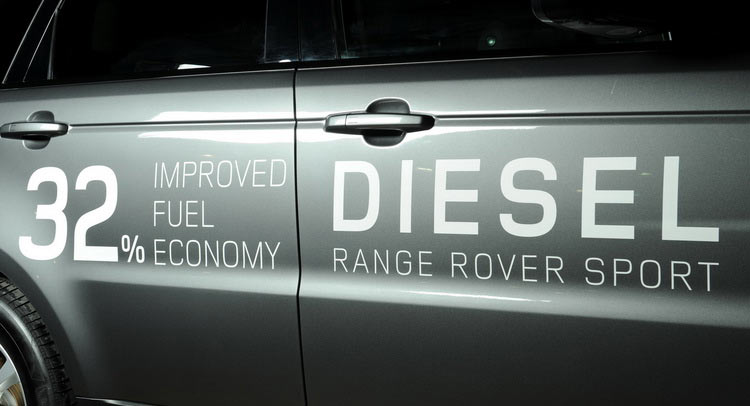According to Jaguar Land Rover managing director Jeremy Hicks, diesel models will account for roughly 70% of his company’s sales in the UK despite growing concerns about air pollution.
There is a clear disparity between this statement and what VW UK boss Paul Willis said recently, as the latter was convinced that the entire market will suffer a 30% sales drop with people focusing more on hybrid cars, electric cars and even petrol-powered cars with strong fuel economy figures.
“I am not convinced that we’ll see a wholesale change away from diesel,” said Hicks. “And we are certainly not seeing any market shift away from diesel today.”
One reason for JLR’s strong mix of diesel models is the company’s successful push to increase sales with fleet customers, who tend to factor CO2 figures into their decision when purchasing cars.
As reported by Autocar, JLR has increased its proportion of fleet sales from 37% to 44% last year and is anticipating a shift towards the industry average of 46% in the next couple of years.
“We’re catching-up, because we’ve always been dominated by retail sales. But now we’ve addressed whole life running cost issues, helped by the new Ingenium engines, which are giving us CO2 figures like 110g/km in the Range Rover Evoque,” added the JLR exec.
In the future, the UK automaker will also commit to building diesel-hybrid powertrains that will be fitted to both luxury cars as well as SUV models. With that in mind, a new family of four-cylinder petrol-engined hybrids is on its way, which will probably power smaller JLR models such as the XE, Evoque and the Discovery Sport.
Currently, the automaker is closing in on starting production for the petrol-engined version of the all-new 4-cylinder alloy-blocked Ingenium unit, code-named AJ200. The new unit will be built alongside the diesel line at JLR’s engine plant in Wolverhampton.








